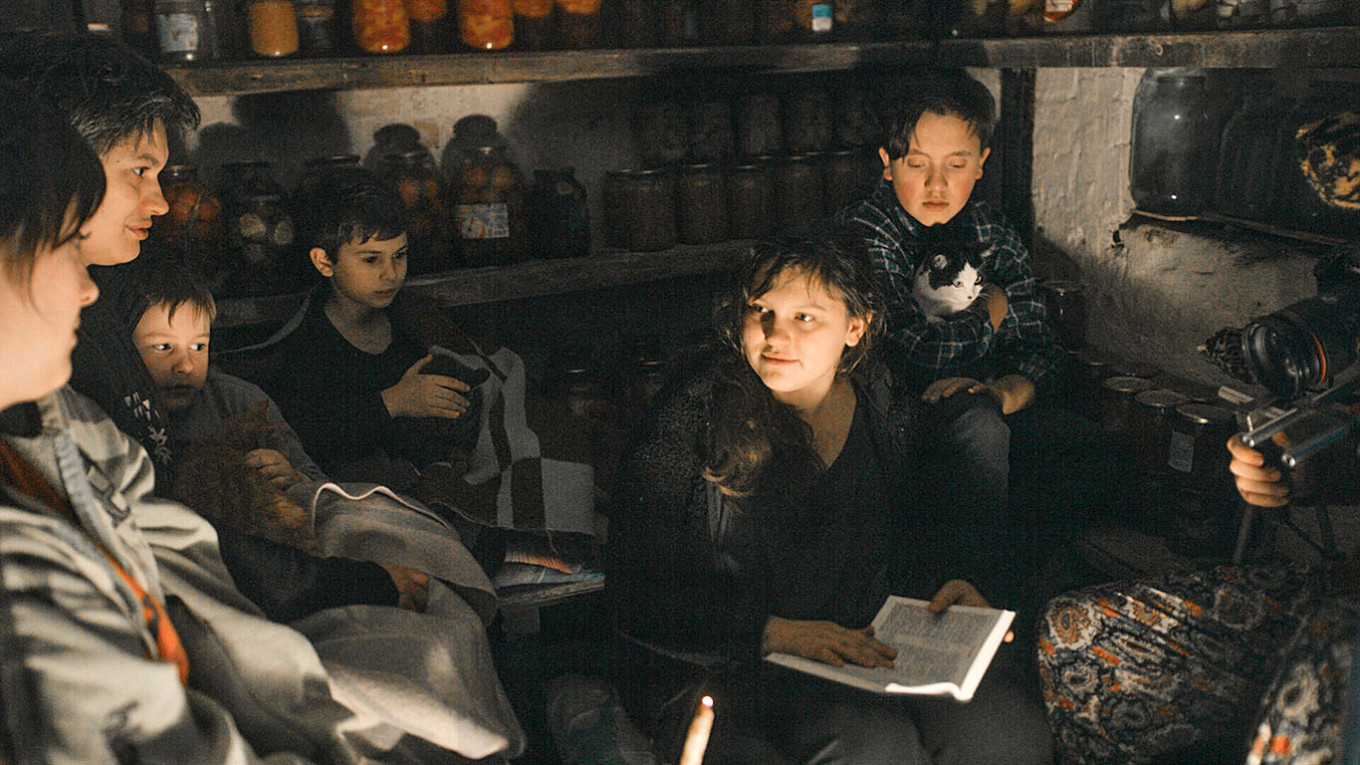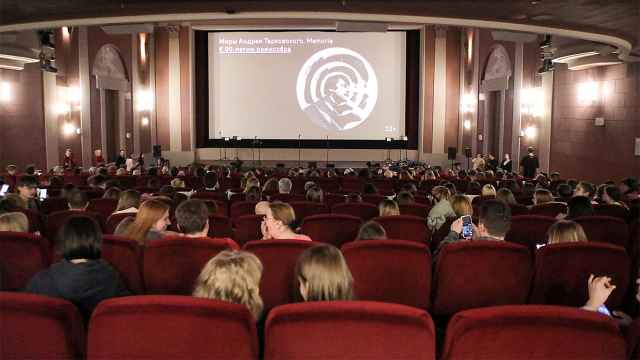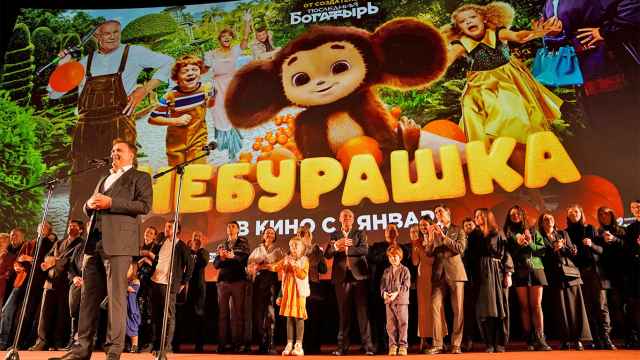At the beginning of 20th century, Ukraine’s cinema was world famous, largely thanks to its revered filmmaker Oleksandr Dovzhenko. Considered to be the father of Ukrainian cinema and one of the key figures of Soviet avant-garde, Dovzhenko made films that have inspired generations of Ukrainian filmmakers to create films of great poetic symbolism that were quite distinct from Soviet canons.
Following the 2014 annexation of Crimea, Ukrainian filmmakers have developed a unique cinematic identity and asserted Ukraine’s cultural and territorial independence.
In the tradition of 1960’s “poetic cinema,” many contemporary directors infuse their films with surrealism and visual innovation, while unapologetically dismantling the remnants of its Soviet past, emboldened by the political turmoil of the recent years.
Here’re some of the recent standouts in Ukrainian cinema.
THE EARTH IS AS BLUE AS AN ORANGE (2020) by Iryna Tsilyk
“The Earth is As Blue As an Orange'' is a documentary film that takes place in the “red zone” of Donbas, which has been a frontline for military conflict between Russia and Ukraine since 2014. The war has upended the lives of single mother Anna and her four children. While their hometown Krasnogorovka is being hit by shelling and explosions, the family finds solace in the arts, making a film about their life amid the war. Despite the trauma and precariousness of living in the war zone, Anna and her kids create their own world, full of love, creativity and hope.
"Actually, our film is not about the war - it serves merely as a background,” says director Iryna Tsilyk, commenting on her documentary. “This film is about growing up; about balancing war and peace; about healing through cinema.”
The film can be watched online on Vimeo in some regions.
EVGE (Homeward) (2019) by Nariman Aliev
In his first feature film Nariman Aliev, young filmmaker of Crimean Tatar descent, tells a story of grief and family, eclipsed by the shadow of colonialism.
After his oldest son dies fighting in Donbas, Mustafa decides to bury him in his native Crimea, embarking on a dangerous journey across war-torn Ukraine with his younger son. Part road movie, part art-house drama, the film depicts the rootlessness and intergenerational trauma of Crimean Tatars - an indigenous people of the peninsula whose history has been marked by persecution and deportation. The film premiered at the 72nd Cannes Film Festival and is inspired by Aliev’s personal history of displacement.
The film may be watched online for a fee here.
ATLANTIS (2019) by Valentyn Vasyanovych
“Atlantis” is set in 2025 in post-apocalyptic, futuristic Ukraine. The war in Donbas leaves the region distraught, extremely polluted and unfit for human habitation. Amid the bleak post-war reality, veteran Sergei works at a local smelter, suffering from alienation and PTSD. Unable to escape his past, Sergei meets former paramedic Katya, who is on a mission to exhume dead bodies so that they can be identified. His encounter with Katya helps Sergei believe in the possibility of a better future.
The film’s director Valentyn Vasyanovych, who was the cinematographer of another Ukrainian must-see “The Tribe,” said that his main goal was to convey the emotional state of people who experienced war. The director chose only non-professional actors for his drama, most of whom had personal war experience. This politically charged sci-fi drama won the Venice Horizons Award at 2019 Venice Film Festival.
The film is available to stream here.
STOP-ZEMLIA (2021) by Kateryna Gornostai
“They say when you get goosebumps, your soul touches your body.”
“Stop-Zemlia” is a coming-of-age story, which, similar to “Atlantis,” features mostly non-professional actors. The film follows Masha, Yana and Senia who are in their last year of high school in Kyiv. Quiet, impressionable and introverted, Masha finds comfort in the company of her friends while grappling with her feelings for classmate Sasha.
In her feature debut, Kateryna Gornostai presents a raw, honest and insightful portrait of Ukrainian youth. The filmmaker chose her actors from among 250 Kyiv high schoolers, 25 of whom were eventually picked. Gornostai spent two months training her actors in performance and Ukrainian language skills.
“Stop-Zemlia” won the Crystal Bear (Generation 14plus) at the 2021 Berlin International Film Festival.
The film is available to stream here.
MOI DUMKI TIKHI / MY THOUGHTS ARE SILENT (2019) by Antonio Lukich
"You're a fool, Vadim."
"I am a musician... a creator."
The protagonist of Antonio Lukich’s comedy is 25-year-old sound recording artist Vadim - a 2-meter tall oddball with big dreams and a mother who doesn’t share his passion. When presented with a job that might be his lottery ticket to move to Canada, Vadim eagerly takes the gig, setting off to record the sounds of animals in the Carpathians. The task turns out to be more troublesome than he thought when Vadim’s traditional mother becomes his road trip buddy.
Lukich’s feature, which was screened at the 2019 Karlovy Vary International Film Festival, is a delight: clever dialogue, amusing situations, deadpan humor and excellent performances.
The film may be watched online in some regions here.
КОХАННЯ / DEEPLOVE (2019) by Mykyta Lyskov
A psychedelic trip into the city of Dnipro, Ukraine, Deep Love is an animated short comprised of several vignettes with no apparent connection to each other. Absurd storylines with a pinch of black humor and satire, the film offers a peculiar yet acute commentary on Ukraine’s rocky decommunization.
The film is available to stream here.
MY FAT ARSE AND I (2020) by Yelyzaveta Pysmak
While its voiceover isn’t in Ukrainian, this cheeky satire from Ukrainian-Polish filmmaker Yelyzaveta Pysmak, born in Chernihiv, deserves a special mention. Pysmak’s playful animated short serves as a critique of societal norms imposed on the female body as its main character struggles with distorted perception of her weight. Through comedy and fantasy elements, My Fat Arse and I brings fresh, feminist perspective to Eastern European animation.
The film may be watched on line MUBI, Vimeo, and other streaming sites.
A Message from The Moscow Times:
Dear readers,
We are facing unprecedented challenges. Russia's Prosecutor General's Office has designated The Moscow Times as an "undesirable" organization, criminalizing our work and putting our staff at risk of prosecution. This follows our earlier unjust labeling as a "foreign agent."
These actions are direct attempts to silence independent journalism in Russia. The authorities claim our work "discredits the decisions of the Russian leadership." We see things differently: we strive to provide accurate, unbiased reporting on Russia.
We, the journalists of The Moscow Times, refuse to be silenced. But to continue our work, we need your help.
Your support, no matter how small, makes a world of difference. If you can, please support us monthly starting from just $2. It's quick to set up, and every contribution makes a significant impact.
By supporting The Moscow Times, you're defending open, independent journalism in the face of repression. Thank you for standing with us.
Remind me later.






